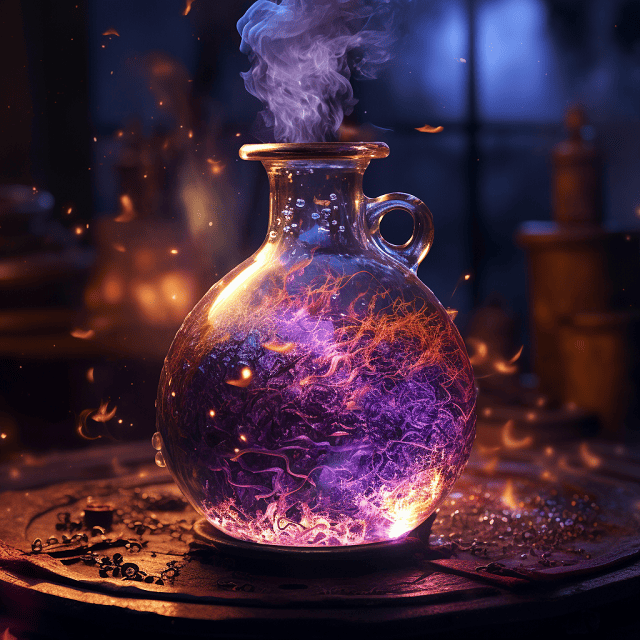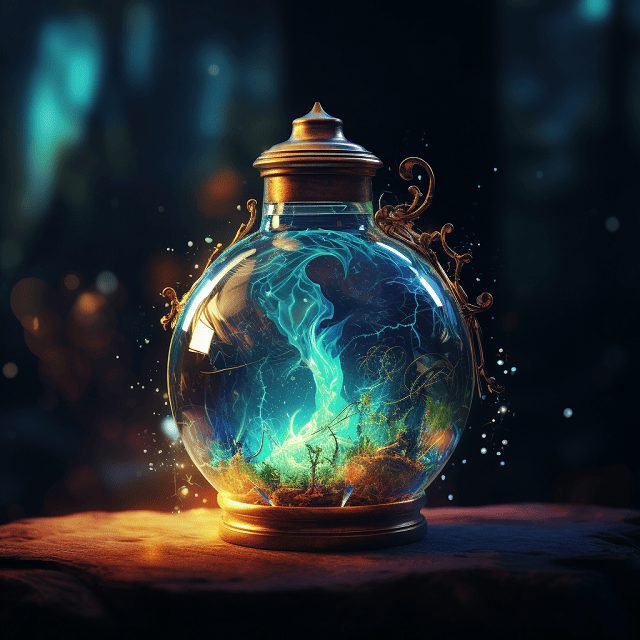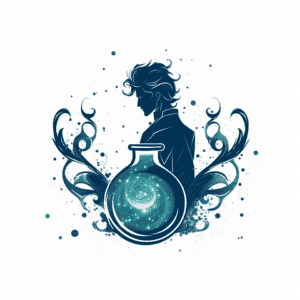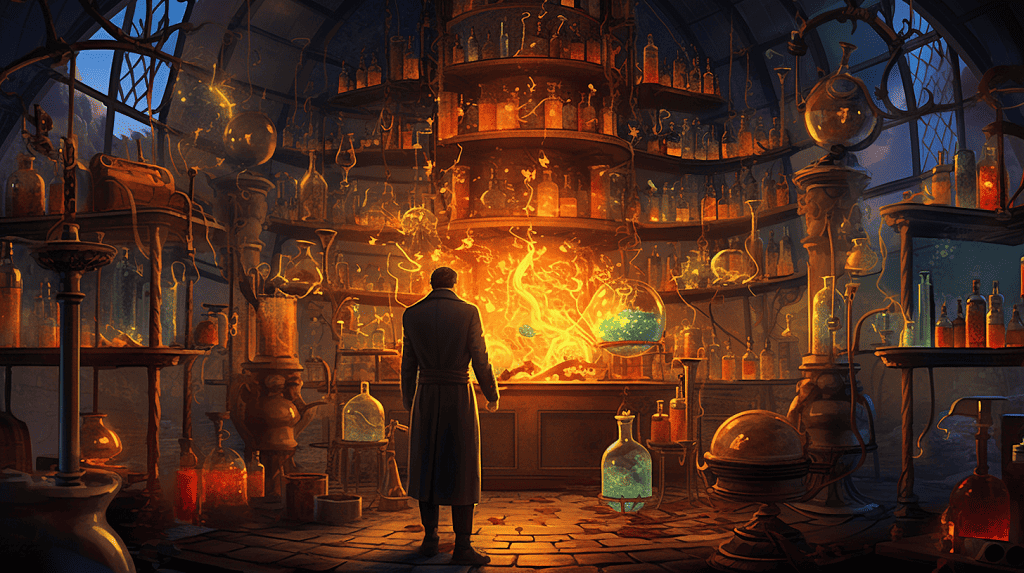Does the Elixir of Life Really Exist?: Ever pondered the Fountain of Youth’s symbolism? You’re not alone. For centuries, humanity’s craved the elusive ‘Elixir of Life’. But does it truly exist? Drenched in history, varied cultures, and scientific pursuit, this mystical potion stirs up fascination and speculation. Let’s delve into this intriguing concept, scrutinize its impact on society, medicine, and future research. Are we chasing a myth or is immortality within our grasp? Let’s find out.
The Historical Significance of the Elixir of Life
You’re about to delve into the historical significance of the elixir of life, a concept that’s intrigued humanity for centuries. This potent potion, thought to grant eternal life or youth, has been a fascinating subject of mythology, literature, and scientific exploration. Its impact on human thought and culture is profound and undeniable, but what’s the actual story behind it?
The elixir of life, also known as the elixir of immortality, first appeared in ancient civilizations like Egypt and China. In Egyptian mythology, it was used by the gods to grant eternal life, while Chinese alchemists believed it was a substance composed of gold, cinnabar, or mercury. They thought it could prolong life indefinitely, and many emperors sought it in their quest for immortality.
In the Middle Ages, the concept of the elixir found favor among the alchemists, who dedicated their lives to its discovery. They believed it was a form of the philosopher’s stone, a substance that could transform base metals into gold and provide eternal life. This pursuit reflected the human desire for longevity and the fear of mortality, themes that persist in literature and philosophical discourse.
Over time, the elixir of life evolved from a literal substance to a metaphorical one. It’s now often seen as symbolic of spiritual enlightenment or personal growth. This shift mirrors our evolving understanding of life, death, and the quest for meaning.

The Elixir of Life in Various Cultures
In different cultures, you’ll find fascinating interpretations of this mythical potion that’s believed to grant immortality. The allure of the Elixir of Life stretches from the ancient Orient to the European Middle Ages, and even into modern pop culture.
- In Chinese mythology, it’s often linked with Taoist alchemists who sought the elixir to achieve immortality. They believed it was composed of rare herbs and minerals, and sometimes, even the essence of gold. Their quests often led to great scientific advancements, such as the discovery of gunpowder.
- In Indian culture, the Elixir of Life is often associated with Amrita, a divine nectar consumed by the gods to maintain their immortality. The story of its creation is preserved in the epic tale of the “Churning of the Ocean.”
- In the Middle Ages, European alchemists like Nicolas Flamel were rumored to have created the Elixir of Life. They pursued a substance called the “Philosopher’s Stone,” which was thought to be able to turn base metals into gold and produce the Elixir.
- Today, the concept of the Elixir of Life continues to captivate us. It’s often featured in video games and movies, symbolizing a universal desire for eternal life.
In each culture, you can see how the quest for the Elixir of Life served to drive scientific and philosophical explorations. Although it remains a mythical concept, its enduring presence in our collective consciousness suggests a deep-rooted fascination with the idea of immortality.
Scientific Search for the Elixir of Life
Despite its mythical origins, you’ll find that modern science has taken up the quest for eternal youth with a fervor akin to those ancient alchemists. Cutting-edge technologies and innovative research are being harnessed in this quest, with scientists exploring multiple avenues.
One such avenue is the realm of genetics. Researchers have identified certain genes, such as the SIRT1 and FOXO3, which are associated with longevity. Manipulating these genes could potentially slow down the aging process.
Stem cell research provides another promising route. These cells have the ability to self-renew and differentiate into various cell types, which could potentially be used to repair and rejuvenate aging tissues.
The table below highlights some of the key areas of scientific research into longevity:
| Area of Research | Brief Explanation |
|---|---|
| Genetics | Identifying and manipulating genes associated with longevity |
| Stem Cell Therapy | Using stem cells to repair and rejuvenate aging tissues |
| Regenerative Medicine | Building new organs and tissues to replace those damaged by age |
| Anti-aging Drugs | Developing drugs that can slow down or reverse the aging process |
In the field of regenerative medicine, scientists are working on building new organs and tissues to replace those damaged by age. This could potentially extend lifespan and improve health in old age.
Lastly, there’s the development of anti-aging drugs. Drugs like rapamycin and metformin are currently being tested for their potential to slow down or even reverse the aging process.
While the elixir of life remains elusive, science is making significant strides towards understanding and potentially slowing down the aging process. Who knows? You might just see the day when aging becomes a thing of the past.

The Role of Modern Medicine in Pursuit of Longevity
Modern medicine’s role in your quest for longevity is a crucial one, with developments in treatments and therapies potentially extending your life and improving its quality. It’s not about seeking a mythical elixir of life, but harnessing the tools and knowledge we’ve gained through scientific progress.
Consider the following ways in which modern medicine contributes to your longevity:
- **Prevention:** Prevention is always better than cure. Through vaccines and early screenings, you can ward off diseases before they take root. This not only increases your lifespan but also improves the quality of life you lead.
- **Treatment:** If you do fall ill, there’s a good chance modern medicine has a solution. From antibiotics that fight infections to chemotherapy that battles cancer, there’s a wide range of treatments available that can save or prolong your life.
- **Management:** For chronic conditions like diabetes or heart disease, modern medicine doesn’t just stop at treatment. It also helps manage these conditions effectively, allowing you to live longer and healthier.
- **Research and Innovation:** Finally, the continuous advancements in the field mean that newer, more effective treatments are always on the horizon. This constant innovation can open up possibilities for further extending human life.
Philosophical Perspectives on the Elixir of Life
You’ve probably pondered over the philosophical perspectives on the concept of an age-defying potion, haven’t you? Being a significant theme in mythology, the elixir of life is often viewed as a symbol of renewal, rebirth, and immortality.
In the western philosophical tradition, the idea of an elixir of life is often associated with the pursuit of perfection. The alchemists of the Middle Ages, for instance, didn’t just seek to turn base metals into gold. They also sought a ‘philosopher’s stone,’ a substance believed to grant eternal life. This pursuit suggests a human aspiration towards an ideal state of being, unblemished by time or mortality.
Eastern philosophical traditions, on the other hand, often present the elixir of life as a metaphor for enlightenment. In Taoism, for example, immortality isn’t merely physical longevity. It’s a state of spiritual transcendence, a liberation from the cycle of birth and death.
In modern philosophy, the concept of an age-defying potion prompts debates about the ethics of longevity. If such a potion existed, who should have access to it? Would it lead to overpopulation, or create a divide between the ‘immortals’ and ‘mortals’?
As you can see, the concept of an elixir of life isn’t just about living forever. It’s a philosophical tool for exploring our deepest desires and fears, our notions of perfection and imperfection, our understanding of life and death, and our ethical responsibilities towards each other. The quest for the elixir of life, then, is a quest for understanding ourselves.
The Impact of the Elixir Concept on Society and Future Research
It’s intriguing to consider how this age-old concept impacts our society and influences future scientific research, isn’t it? The notion of an elixir of life, a potion that grants eternal youth or longevity, has fascinated humanity for centuries. Let’s delve into the ways this concept affects society and propels scientific exploration.
- **Influence on Pop Culture:** You can’t ignore the prevalence of the elixir of life in literature, cinema, and video games. It’s a recurring motif that shapes narratives and characters, reflecting our collective fascination with immortality.
- **Inspiration for Research:** The elixir concept isn’t merely a myth. It’s an inspiration for scientists researching aging and longevity. Many breakthroughs in genetic engineering and regenerative medicine stem from this age-old quest for eternal life.
- **Socio-Economic Impact:** The pursuit of longevity affects economic structures. Industries around anti-aging products and services thrive, signifying our willingness to invest in the hope of extended life spans.
- **Ethical Implications:** Lastly, the elixir of life stirs ethical debates. If it were achievable, who gets access? Would it widen social inequality? These questions influence ongoing discussions about the morality of longevity research.
Frequently Asked Questions
What Is the Main Ingredient in the Mythical Elixir of Life?
You’re asking about the main ingredient in the mythical Elixir of Life. It’s important to note that this is rooted in mythology and varies across cultures. Often, it’s associated with substances like gold or quintessence, a pure substance that medieval alchemists believed existed. However, considering the Elixir of Life doesn’t exist in reality, there isn’t a definitive ‘main ingredient’. It’s more a concept tied to immortality and rejuvenation in many legends and tales.
Were There Any Famous Personalities in History Who Sought the Elixir of Life?
Indeed, many historical figures eagerly sought the Elixir of Life. Most notably, China’s first emperor, Qin Shi Huang, sent expeditions in search of this mythical potion. Alchemists during the Middle Ages also tirelessly pursued it. It’s fascinating that despite their different backgrounds, these individuals were united by a single goal: to attain eternal life. However, their quests were in vain as no such elixir exists, at least not in the way they’d hoped.
Are There Any Documented Side Effects of Consuming the Elixir of Life in Folklore or Legends?
In folklore and legends, you’ll find various side effects documented from consuming the Elixir of Life. It’s often associated with immortality, but it’s not always positive. In some tales, you’re cursed with eternal life but also eternal aging, leading to an existence of perpetual suffering. Others suggest you might lose your humanity, becoming more like a ghost or spirit. So, while the Elixir promises life, it’s not always the life you’d want.
What Is the Average Lifespan Expected if One Were to Consume the Elixir of Life According to Various Cultural Beliefs?
You’re likely wondering, if you were to sip the mythical Elixir of Life, how long could you expect to live? Various cultures provide different answers. In Chinese mythology, you’d gain immortality. Tales from the Middle East suggest a lifespan of a thousand years. Greek legends, however, hint at eternal youth rather than endless life. So, while it’s a fascinating thought, it’s important to remember these are just stories, not scientifically proven facts.
Is There Any Correlation Between the Elixir of Life and the Concept of Immortality in Religious Texts?
Yes, there’s a significant correlation between the Elixir of Life and the concept of immortality in religious texts. Many faiths reference a life-giving substance, often a drink, that grants eternal life. It’s not always called the ‘Elixir of Life,’ but the principle remains the same. However, it’s critical to understand these are metaphorical representations aimed at conveying deeper spiritual truths, not literal promises of earthly immortality.
Conclusion
So, does the fabled fountain of forever truly exist? Scientifically, we’re still seeking. Culturally, it’s a captivating concept, contained in countless tales. Modern medicine might not offer immortality, but it’s making major strides in maintaining our vitality. Philosophically, perceptions vary vastly. The concept’s impact, undeniably, urges us to unearth unending understanding. Regardless of reality, the quest for the elixir of life continues to create a compelling narrative, nurturing our never-ending curiosity.

